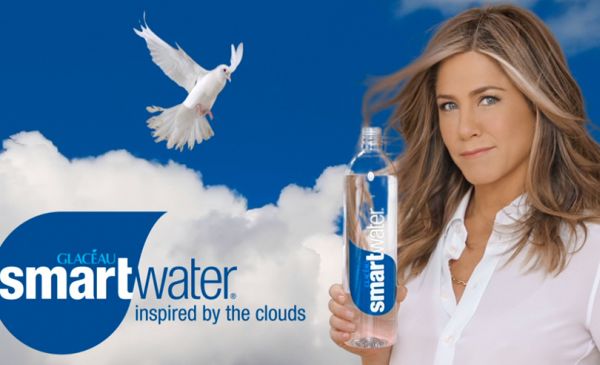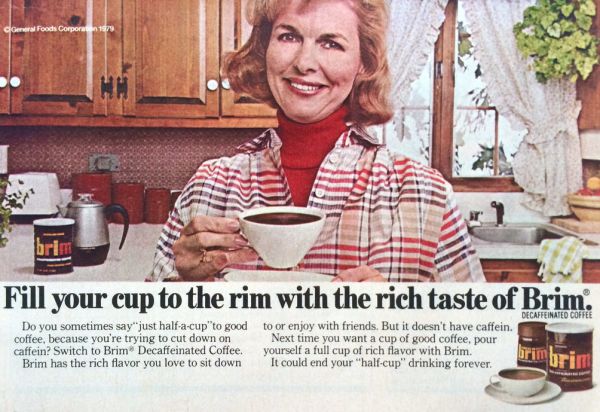I sipped my espresso and waited nervously for her. The warm Italian sun was streaming into the café window and I savored the Milanese evening.
In the distance I spotted her little Italian scooter heading my way. She pulled up to the curb, nonchalantly dismounted and tossed her hair to one side. Entering the café she fixed me with a wide smile and strode confidently my way. We embraced and I looked deep into her smoldering Roman eyes. “What is that smell?,” I asked her.
“It’s my Vespa,” she said breathlessly.
It might sound like bad fiction but it is a reality. Piaggio, the Milan based manufacturer of the iconic Vespa brand of scooters has diversified into the perfume business. The brand has extended across a range of fragrances, each carrying the Vespa name.
We should pause at this stage and enjoy just how ridiculous this whole idea is. Vespa is a strong and, these days, very healthy brand with global awareness and attractive associations with Italy, freedom and the magical hedonism of ‘la dolce vita’. But it is also a small machine with a smelly 50cc four-stroke engine. Any brand extension in the olfactory area will always be hampered by associations with the exhaust fumes that emanate from below rather than the extrovert vibes experienced above.
Clearly, Vespa perfume is already destined for the giant dumpster of dumb brand extensions where it will take its rightful place next to Levi’s suits and Bic underwear. But surely the executives at Piaggio, who have done a superb job in recent years of rescuing and restoring the Vespa brand, are smart enough to realize that their new perfume concept smells bad from the start?
Well yes and no. To understand why stupid brand extensions are created, you must peel back the layers and look at who is responsible for them and how the revenues are shared.
For starters, although the perfume will carry the Vespa name, it is being produced under a licensing agreement with perfume manufacturer Coty. The company specializes in licensed fragrances and manufactures scents for big brands such as Adidas and Chloe as well as celebrity fragrances for the likes of Lady Gaga, David Beckham and Katy Perry. This kind of licensing deal is particularly attractive to Coty because rather than having to invest hundreds of millions of pounds in inventing a new perfume brand from scratch and communicating its appeal globally, licensed fragrances come with pre-built brand equity and a pre-existing fan base.
Coty pretty much invented this licensed approach to fragrances, but these days everybody is at it and that has created problems. When people such as Carlos Santana and Tim McGraw have their own fragrance, it’s apparent just how few licensing opportunities are available.
Hence the barrel-scraping decision to go for Vespa. At the launch, Coty chief executive Michele Scannavini went to great lengths to emphasize where the company was taking its inspiration from.
“No gasoline, no diesel, just the smell of freedom,” he told the Financial Times. “What you smell when you ride a Vespa in the beautiful Italian countryside or along the Riviera”. Nice try Michele – I salute you.
But why would Piaggio sign up for the deal? Simply because it has nothing to lose. Under the deal, Coty will probably pay Piaggio between 5 and 10 per cent of revenues from the new perfume in licensing income. It’s literally money for doing nothing and, provided the extension is far enough away from Vespa’s original category, even a bad scent will do the brand no harm.
There is even a small upside for Piaggio. Even if the perfume fails as predicted, the ad spend and launch budget that Coty will invest in the new launch will only bolster Vespa’s scooter business during the short period that the perfume brand is being pushed.
It is a strange, recurrent cycle of bad ideas executed with aplomb. But it explains such classics as Grateful Dead skis, Harley Davidson cake decorating kits, Colgate dinner entrees and Heineken shoes. Yes, shoes.
This thought piece is featured courtesy of Marketing Week, the United Kingdom’s leading marketing publication.
The Blake Project Can Help: The Blake Project’s Brand Licensing Audit
Join us for The Un-Conference: 360 Degrees of Brand Strategy for a Changing World. May 18th ~ 20th at the famed Versace Mansion in South Beach, Florida. A Competitive-Learning experience reserved for 40 marketing oriented leaders and professionals.
Branding Strategy Insider is a service of The Blake Project: A strategic brand consultancy specializing in Brand Research, Brand Strategy, Brand Licensing and Brand Education





2 comments
Pete Canalichio
February 10, 2015 at 7:53 am
It is deals like this one with Vespa that gives the industry a bad name. In his article, Mark Ritson states, “But why would Piaggio sign up for the deal? Simply because it has nothing to lose. Under the deal, Coty will probably pay Piaggio between 5 and 10 per cent of revenues from the new perfume in licensing income. It’s literally money for doing nothing and, provided the extension is far enough away from Vespa’s original category, even a bad scent will do the brand no harm.”
I couldn’t more vehemently disagree with this statement. At minimum, this deal will confuse Vespa’s consumers who follow the mantra that Vespa is not just a scooter, but a way of life. Worst case it could alienate consumers who will see this as a total brand disconnect and thus erode Vespa’s brand equity. All for what? A minimal amount of royalty revenue? Did Piaggio conduct any brand extension research to see whether consumers have given them permission to extend the Vespa brand into perfume?
It is imperative for all brand owners to first understand their brand’s position and promise before considering any type of extension. Knowing these will ensure that any potential brand extension is aligned with that position and promise. Next they must challenge the extension to see if a) the brand brings a competitive advantage to the category. Otherwise it will fail. Like Mark Ritson, I would argue that Vespa does not bring a competitive advantage to the perfume category, at least not yet; b) the extension will not hurt the parent brand – just like when Bic tried and failed to extend its brand into perfume, Piaggio will find that this extension will fail and hurt the parent; and c) the parent brand will not hurt the extension.
Only after evaluating a licensing opportunity from all sides can a brand owner ascertain whether it meets the criteria and can be extended via licensing. I hope Piaggio will consider these points the next time they decide to trade their brand equity for a little royalty revenue.
Maciej Fita
February 11, 2015 at 11:27 am
I think that is one thing that sometimes brands don’t realize. You don’t see Nike trying to make soap do you? You need to stay within the walls of what your brand was designed to do in the first place. I think Martha Stewart is probably one of the only brands that can push the limitations on products.
Comments are closed.